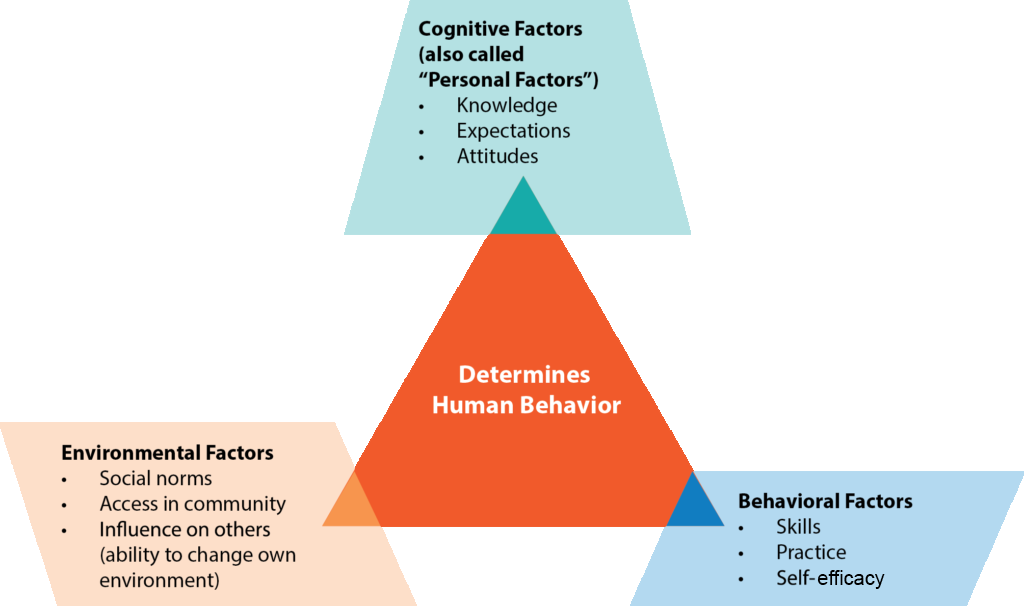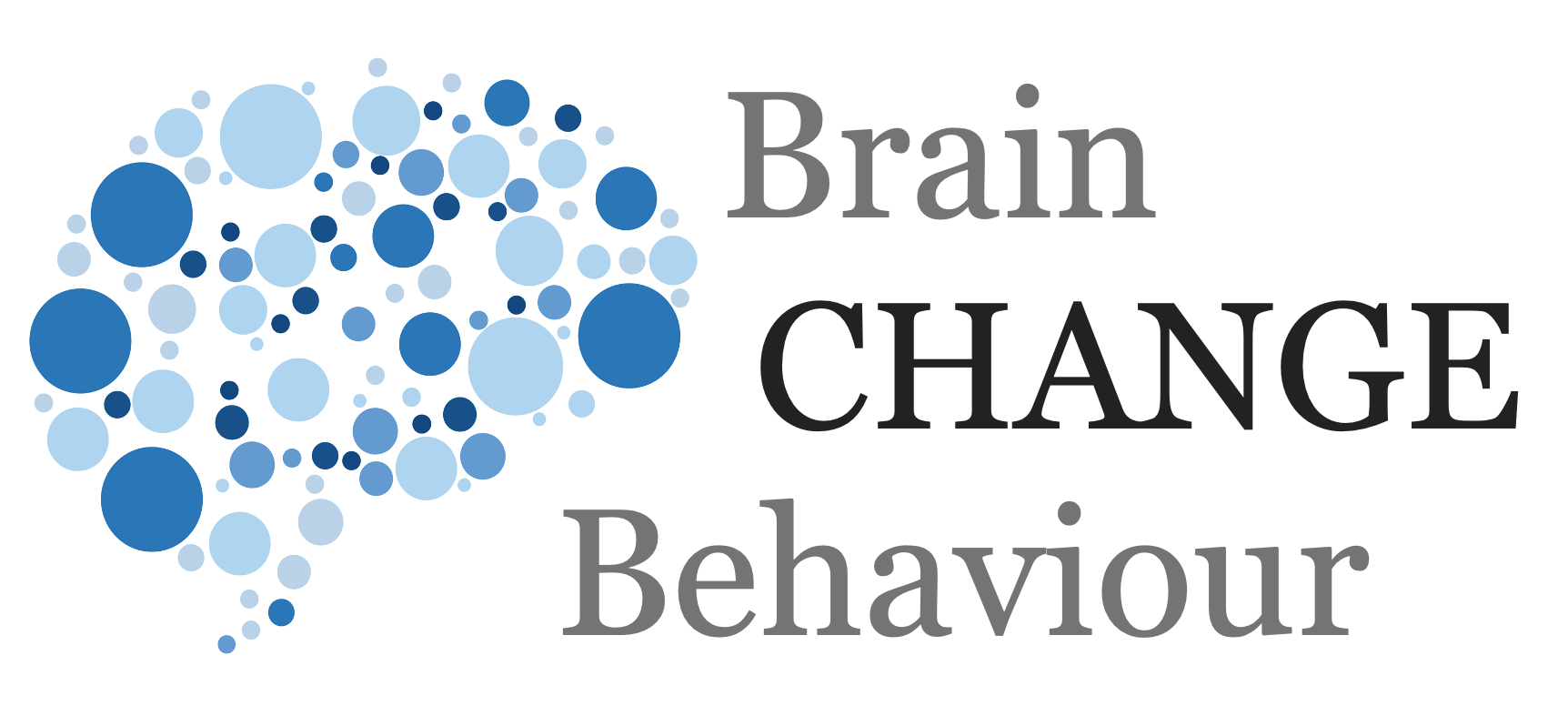Article
Change Models

Social Cognitive Theory by famed psychologist Bandura is grounded, as the name suggests, in social contexts saying that behaviour is driven by the triad of behaviour, personal, and environmental factors.
This is often known as reciprocal determinism. Environmental factors represent situational influences and environment in which behavior is preformed while personal factors include instincts, drives, traits, and other individual motivational forces.
Cognitive / Personal Factors
- Knowledge
- Expectations
- Attitudes
Behavioural Factors
- Skills
- Practice
- Self-Efficacy
Environmental Factors
- Social Norms
- Access in the Community
- Influence on others
Social Cognitive Theory evolved from Bandura’s Social Learning Theory and he also speaks of reicnforcement, something that will enable the behaviour to continue or become stronger and also the potential need for incentives (which help to boost expectations). In learning contexts he also noted the case of obervational learning whereby we learn just from observation.
Summary
This is another three-factor model which includes similar elements to other models and shows their interactions. Interventions would therefore need to focus on which if these need to change and how this coudl happen.
Simple Takeaways
-
- Behaviour is driven by cognitive/personal, environmental, and behavioural factors
- This helps you describe behaviour and guide interventions
© leading brains 2022
Reference
More Articles
To Change, Start Right Away
Sorry, stupid question right off the cuff. Change what?
Well, in this recent study they were looking at changing health behaviours.
Nudges Work In Changing People’s Behaviour
So what do you mean by “nudges”?
Richard Thaler is considered is one of the founding fathers of nudge theory in the behavioural sciences proposing nudges as the best method to modify people’s behaviour. Made popular by his book Nudge in 2008.
Followers Make Group Decisions a Lot Worse, or a Lot Better
First off, why is group decision-making important?
Well, a lot (just about all, if you think about it) of the biggest decisions in society and in business are made by groups: executive committees, governments, even the population in referendums.
The Right Rewards Boost Creativity in Business
So who doesn’t want to have creative ideas in their business.
The problem is getting employees to be creative while doing their day job as well. We also know that just asking or demanding creativity can diminish creativity and innovation!
Changing Your Personality — Even If You Don’t Want To!
Are you telling me that our personality can change even if we have no motivation to do so?
In a nutshell, yes. But it depends on which personality trait!
Exercise is Infectious
This is an older study (2017) I came across and found fascinating. As many of you regular readers will know I have reported many times on the benefits of exercise.
Why our Brains Miss Opportunities for Innovation
When we think of innovation we think of creating something new. A new study shows that, however, we, by default, try to add something whereby subtracting something could make something better.
Brain Region for Changing Behaviour Identified
The saying goes “Insanity is doing the same thing over and over again and expecting different results.” This obviously refers to doing the same thing over and over and continually getting a bad result
From Couch to Ultra Marathon with Mental Imagery
On first glance I thought the above headline was fascinating. I am a sports person, look into the neuroscience of motivation, and have been in the “motivational” space for nigh on two decades.
Limits to Scalability – Voltage Drops
Voltage Drop is a useful term and analogy to the problems of scaling ideas or change in any environment. Voltage drop refers to how electrical current can decrease across distance it travels.










